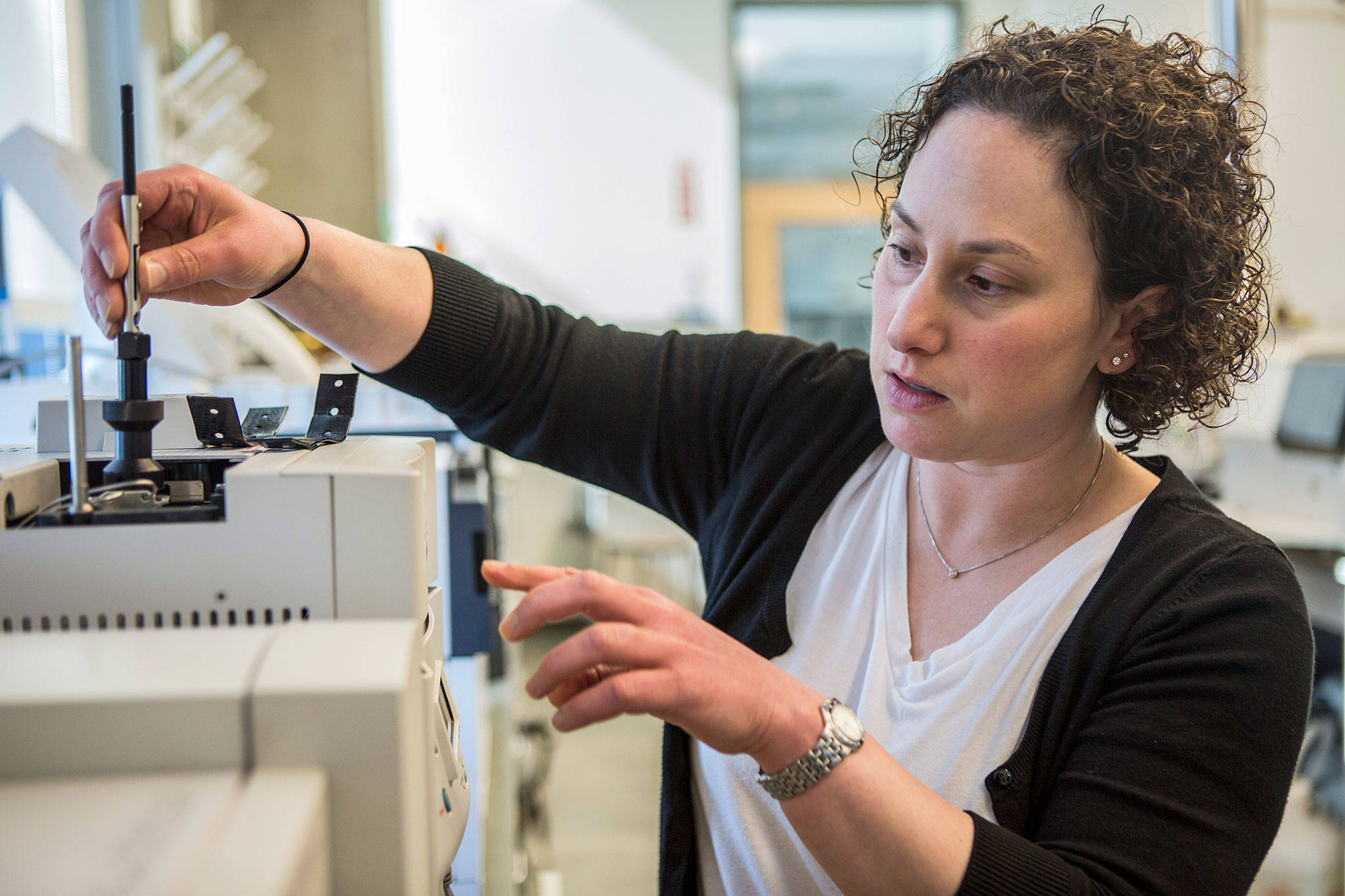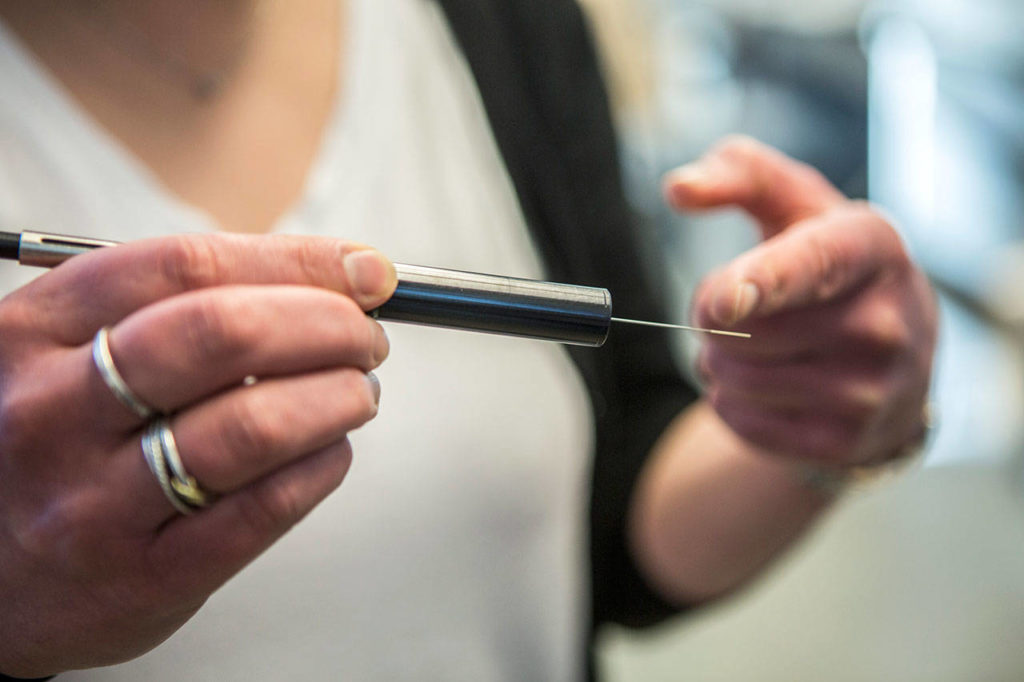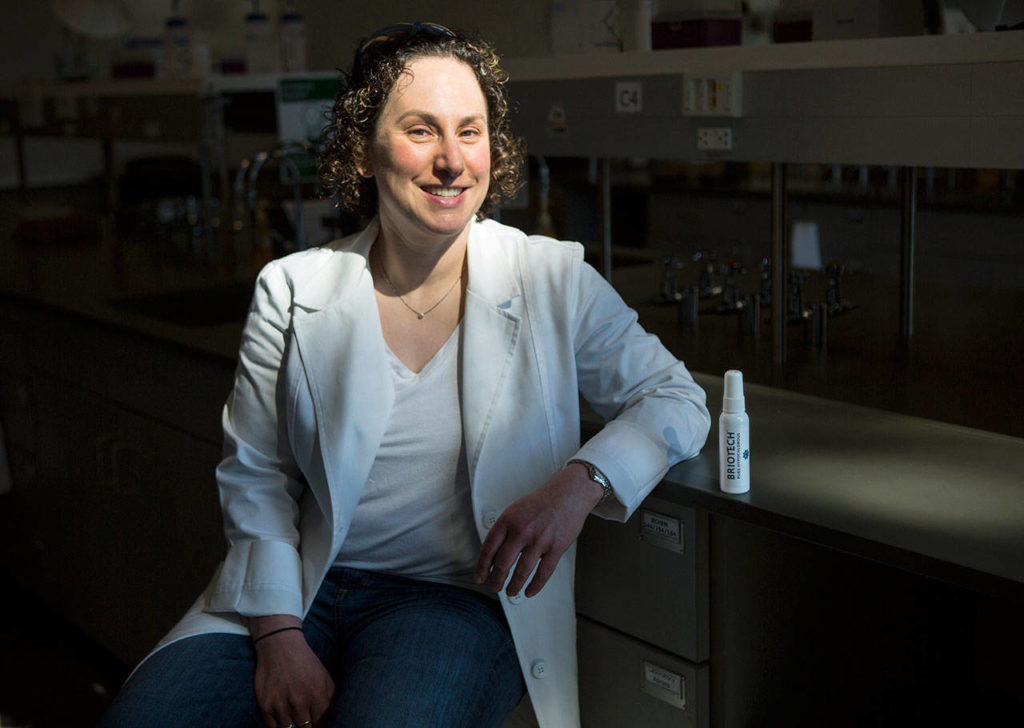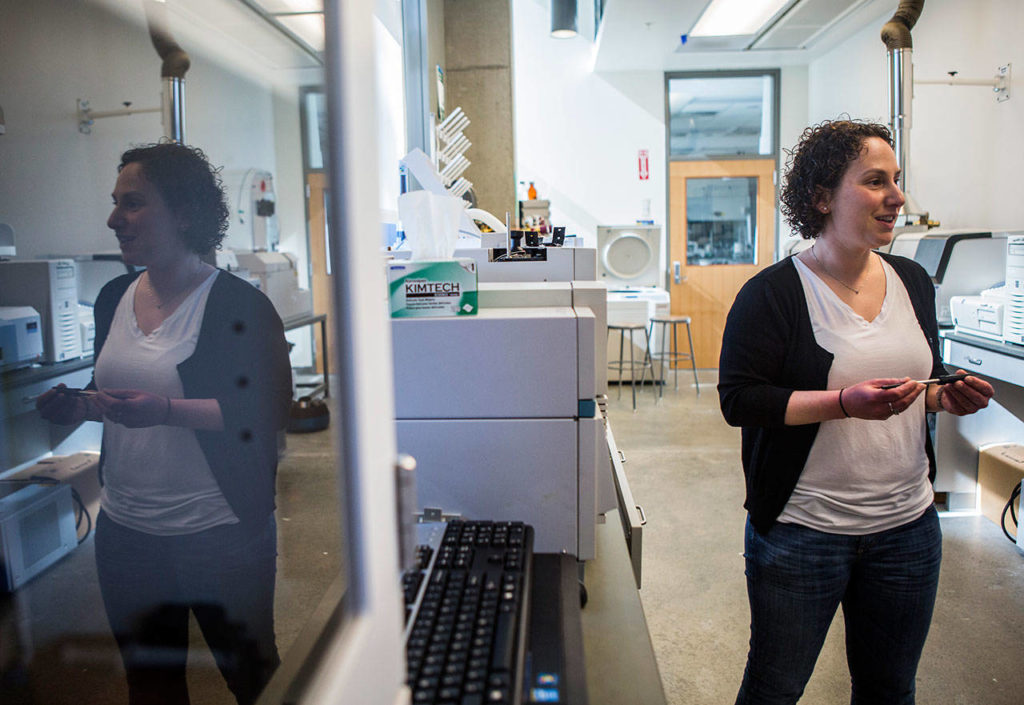She’s the professor of clean latrines.
And she’s making quite a stink on campus.
What’s up with that?
Lori Robins was awarded a $155,000 grant from the National Institutes of Health to research how to reduce the foul odor in latrines.
This isn’t about smelling up the bathroom in the comfort of your home. Or holding your nose in a campground commode.
Those places can wait.
“Our goal now is to help people who need it most first,” said Robins, an Issaquah native and University of Washington Bothell professor since 2013. “Toilets in developing countries, it’s a huge problem.”
It starts with clean latrines. Making pit toilets safe and less offensive for the billions of people who don’t have plumbing.
“Our approach is to get rid of the odor and make it more clean by inactivating viruses,” said Robins, who has a doctoral degree in bioorganic chemistry. “Viruses that cause diarrhea, for example, can lead to death in developing countries because they don’t have a way to help with the illnesses.”
According to the World Health Organization, 2.3 billion people do not have basic sanitation facilities, resulting in 280,000 deaths annually. It’s a cause Bill Gates and his foundation has taken on, but there’s plenty of work to go around.
Robins and her UW Bothell undergrads are focusing on odor control. A graduate student on the Seattle campus is working on virus inactivation. “Then we will mix the two projects together as we continue on,” she said.
In Robins’ research, the promising spray is hypochlorous acid — not Glade or Febreze or Poo-Pourri (there really is such a thing).
Rather than scent the air, the chemical agent is being tested to remove stinky compounds.
In chemistry-speak, hypochlorous acid is a weak acid with oxidizing properties. The result is a germ-buster, of sorts.
The UW Bothell research is a collaboration with Briotech, a small Woodinville company that manufactures hypochlorous acid for skin care.
Reviewers on Amazon, where Briotech sells 4-ounce spray bottles of the solution for $14.95, describe using the product on wrinkles, psoriasis, to cleanse piercings … the list goes on.
“One of the things we figured out you can do with this product is control odor,” said Briotech science officer Jeff Williams, a retired Michigan professor whose career focused on microbiology and infectious diseases. “It is such a big issue in many people’s lives. I was familiar with it in sanitation and latrines because I’ve worked in India, Africa and South America.”
Williams said the university provides the brainpower and technology to study uses for the company’s product. Robins previously partnered with Briotech to research how the acid can destroy prions, the abnormally folded proteins behind many neurological diseases.
The latrine project started over the summer and has funding for two years.
“This is a room where the magic happens,” Robins said on a tour of the university lab. “Where science happens.”
Then she started using big words like gas chromatography and mass spectrometry.
Another room — a laboratory, not a latrine — is where the odors happen.
“Eventually we’ll have to test it in an actual toilet environment,” she said. “We have to do the basic chemistry behind it first.”
With the research grant, Robins is testing hypochlorous acid to combat four compounds in a latrine’s headspace: indole, butyric acid, dimethyl trisulfide and para-cresol.
“It’s bad,” she said of the smells.
Here’s how her students describe the funky four:
Indole: A little perfumey at very low concentrations. At higher concentrations, it’s the essence of poop.
Butyric acid: Bile.
Para-cresol: Brings to mind that feeling people have after they realize they’ve stepped in dog-doo.
Dimethyl trisulfide: The sulfurous smell of rotten cabbage.
“It’s the highlight of my week when we sit down to talk about it,” Robins said.
“It’s something people can relate to. We can solve a problem that is important in developing countries but also talk about it with people over dinner.”
Wait, what?
“It’s not ideal for dinner conversations,” she added.
Andrea Brown: abrown@heraldnet.com; 425-339-3443. Twitter @reporterbrown.
Talk to us
> Give us your news tips.
> Send us a letter to the editor.
> More Herald contact information.




























